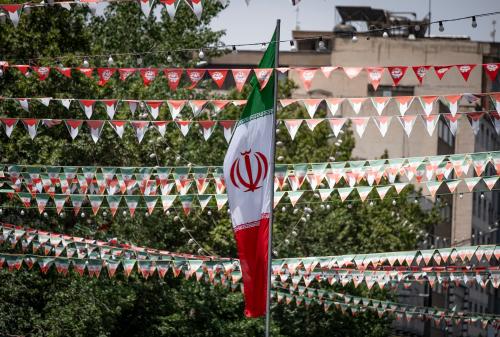With the continued willingness and ability of President Bashar al-Assad of Syria to brutally crush his country’s opposition, the question about what options we might have to stop the slaughter grows increasingly haunting. I am not currently advocating military intervention, but it is worth surveying the tools at our disposal to contemplate what might come next – if not immediately, then perhaps down the road.
1. Invasion to carry out regime change
Let’s start with the extreme option and then work down the list, so to speak. Invasion to carry out regime change, even if done with complete political correctness, a UN mandate, and strong Arab and other Muslim participation, is very unappealing. Syria is not dissimilar from Iraq in size, and as such one would have to think in terms of 100,000 to 150,000 troops for several years of post-invasion stabilization. Casualties to foreign forces alone could number well into the hundreds or low thousands, even if Assad did not use chemical weapons in response.
One can hope otherwise, but we have been down that unhappy road of optimistic invasions and so-called cakewalks before. There would be potential benefits to this kind of operation, to be sure, but America is simply too tired, its finances too broke and its Army and Marine Corps too overused of late for this to make sense unless things get far far worse. No other country is capable of spearheading the effort or providing most of the troops either.
2. No-fly and no-go zone
Assad should not, however, take complete solace in such analysis because the international community’s options do not end there. If and when the Syrian opposition ever requested it, and key Arab states supported it, another option would be a form of a no-fly and no-go zone. It would be similar in ways to what the outside world did in Iraq in the 1990s to help protect the Kurds. One or two major parts of Syria might be protected in this way, at least reasonably well, by a combination of outside airpower and perhaps a limited number of boots on the ground.
This option is not ripe at the moment, however. Syria’s opposition is too fractured, and the Arab world, while far more critical of Assad than a couple of months ago, is hardly ready to go to this extreme. Neither, of course, is Russia. And it would hardly be easy; it could for example set the international community up for a multi-year operation that effectively partitioned Syria and required a couple of divisions of outside forces to police. Assad should know it is there, if things get a lot worse, but at the moment even Syrian dissidents do not appear to favor such an idea.
3. A maritime operation to enforce strong sanctions
A third option is a maritime operation to enforce strong sanctions on Syria. This approach would not close off all Syrian trade. But especially if Turkey – and perhaps even Iraq and Jordan – cooperated at their land crossings, we could not only impose prohibitions on certain kinds of trade with Assad’s Syria, but enforce those prohibitions through a naval quarantine. As in Iraq in the 1990s, perhaps we would focus on the oil trade and various high-technology sectors with such sanctions. The naval assets required would be easily within the capacity of NATO’s fleets, ideally operating in conjunction with Arab partners. This option would not of course guarantee that Assad would change course, but it could allow us to seize control of much of his economy – and again, floating the idea may serve as a partial deterrent, since he should be made to realize that we do in fact have ways to escalate well short of outright invasion.
4. An air campaign
Finally, an air campaign inspired by the Kosovo model could be used to punish the regime and its cronies. It could go after command and control assets and places like banks, electricity grids, and Baathist party facilities. It would not be able to protect civilians throughout the country, of course. That is why Kosovo is the better analogy rather than Libya, where the geography and demographics lent themselves to the protection of Benghazi-based rebels as well as their sympathetic populations with limited amounts of airpower. But a punitive air campaign, perhaps combined with the naval quarantine discussed just above, could magnify severalfold the consequences for the Assad regime and inner circle of their terrible repression of their own people. That in turn could increase the odds that the regime would relent, or that a dissident group would carry out a coup to remove the president.
There is no guarantee such options would work, and that is part of why I do not favor them now. But it may well be time to starting talking and thinking about them.
The Brookings Institution is committed to quality, independence, and impact.
We are supported by a diverse array of funders. In line with our values and policies, each Brookings publication represents the sole views of its author(s).



Commentary
Op-edFour Military Options in Syria
August 30, 2011